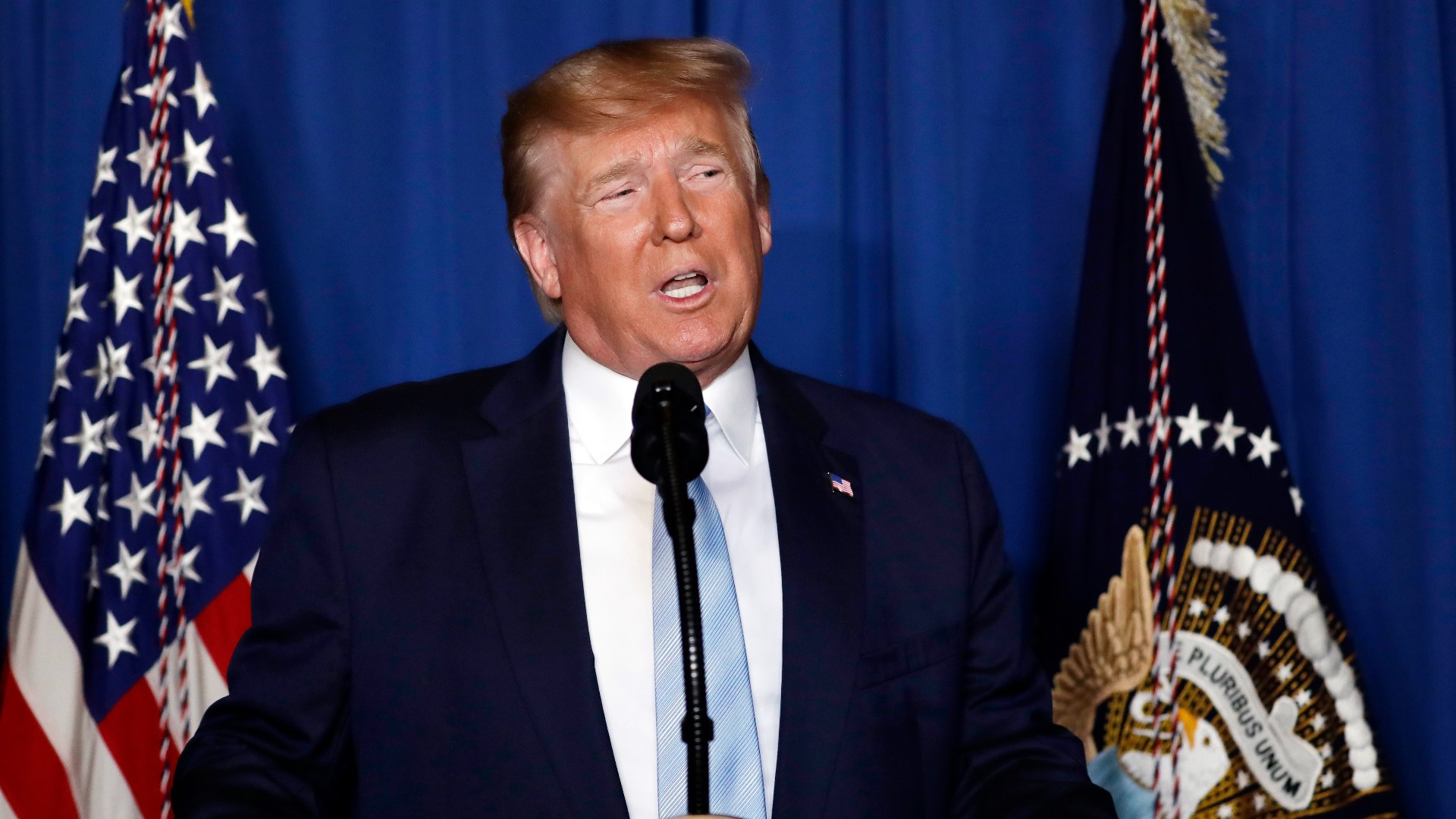INDIANAPOLIS — Former President Donald Trump pleaded not guilty Tuesday to 34 felony counts inside a Manhattan courtroom.
Just hours after his arraignment, Trump was speaking out, calling the case politically motivated.
But Manhattan's district attorney is standing by the decision, stressing the alleged crimes committed are felonies, regardless of who committed them.
After Tuesday's hearing, the judge asked the former president to avoid making comments that could incite violence or civil unrest.
With the indictment now unsealed, we're learning new details of what the DA's office thinks it can prove against the former president.
Legal experts stress the repayments made to Trump's attorney for hush money payments made were falsely logged as legal fees, resulting in nearly three dozen charges of falsifying business records.
"Unprecedented, and it's an incredibly unique moment. This has never happened before in the United States. It rarely happens in other countries," said Shruti Rana, law professor at the Hamilton Lugar School of International Studies with IU and Maurer School of Law.
Rana explains the charges behind the issue at hand.
“The issue in this situation is that President Trump had always maintained he’d been paying his lawyer for legal services and that, of course, is perfectly legal, to pay your lawyer for legal services," Rana said. "And additional facts had come to light that led to this indictment where the prosecutor basically felt there was enough evidence to show that money was not going to the lawyer as reimbursement for legal services but rather was going to the lawyer to reimburse the lawyer for making hush money payments."
Rana said while fraudulent business charges are common, often seen in different business relationship situations, the charges before Trump are also unique.
"Here, the unusual portion is that it relates to election law and elected office and not just election law and elected office but an election for the president of the United States," Rana said.
Along with his arraignment Tuesday, Trump was fingerprinted but no mugshot was taken. And unlike many others who are charged with felonies, the former president was immediately able to leave the courtroom and soon after, the state.
Because of the unprecedented nature of this case and potential security concerns, Rana said these accommodations make sense. But, she said, if a conviction were to happen down the road, it may have a lasting impact on Trump's ability to run for office.
“Definitely, there are both political and legal implications," Rana said. "The political implications and optics of someone who’s been convicted of a crime and running for office. Then we’d have to wait to see what the conviction was in order to determine how it would legally impact the ability to run for office."
Now, as both the defense and prosecution begin work on the case, legal experts around the world are watching closely.
Rana said Tuesday's arraignment will send a message.
"It is a resounding statement for the rule of law, because in the United States, we have this idea that the rule of law means no one is above the law and that includes the president of the United States, that includes officials at the highest levels," Rana said. "The law applies equally to every single one of us and that's one of the fundamental principles of our nation."
Trump is expected back in court Dec. 4 for the next pre-trial hearing.

